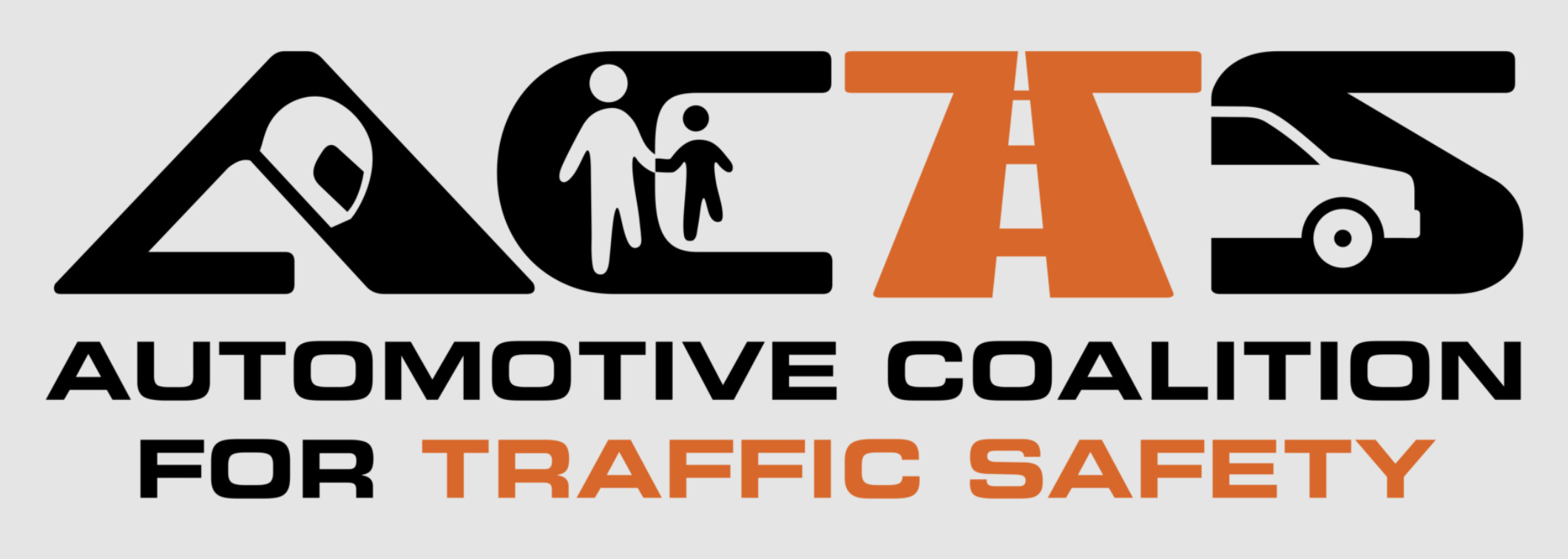
Dulles, VA, Nov. 15, 2021 – Today the Automotive Coalition for Traffic Safety, Inc. (ACTS), a Virginia non-profit made up of the world’s leading automakers, released the following statement on the signing of the bipartisan infrastructure bill, noting its positive effects on the Driver Alcohol Detection System for Safety (DADSS) Program – a public-private partnership between the auto industry and the federal government to develop anti-drunk driving technology in vehicles of the future.
“The bipartisan infrastructure bill is a victory for all road users and a testament to the dedication of the traffic safety community who work tirelessly to reverse the deadly trend of drunk driving in America,” said Robert Strassburger, President & CEO of the Automotive Coalition for Traffic Safety.
“The legislation lays out a process for commercializing advanced drunk and impaired driving prevention technology, which closely matches the timeline for commercialization of the DADSS technology. It also provides the necessary resources for us to complete our work.
“We are grateful that Congress continues to recognize the Program’s life-saving potential, and we are working hard to complete the remaining development and testing necessary to ensure the technologies are fast, accurate, and reliable before being introduced to consumers.
“Today, the DADSS technology suite remains widely accepted as the most promising and expedient pathway to prevent drunk driving fatalities on a large scale. It also remains the best choice for wide deployment at a cost, size and manner that will be accepted by consumers, and the only technology that will be able to achieve the maximum safety benefits estimated by the Insurance Institute for Highway Safety (IIHS).
“Now more than ever, Americans understand how scientific research helps us improve public health. Members of the Automotive Coalition for Traffic Safety (ACTS), made up of the world’s leading light car and truck manufacturers, remain strongly supportive of this Program and are dedicated to ensuring that DADSS technologies are deployed quickly and safely in the next few years.”
After years of successful research, the DADSS Program has proven two concepts – a breath system, and a touch system, that will measure specific blood alcohol concentration (BAC) in drivers at or above 0.08% and prevent a vehicle from moving.
Unlike existing breathalyzers or interlocks, the DADSS technology is designed to be seamlessly integrated into vehicles so there is no physical hardware that can be tampered with. It is also being thoroughly tested and trained to tell the difference between the driver and any passengers.
In 2021, the Program announced the technology is moving out of the lab and onto the road, with the breath technology being made available for open licensing in commercial vehicles for the first time. ACTS is in the process of commercializing the breath system for use by fleet operators implementing a zero-tolerance alcohol policy for their drivers, and vehicle integrators are expected to utilize the technology beginning in 2022.
This is an important step in the Program’s overall goal to create a fully passive, non-invasive alcohol detection system for consumer vehicles. A consumer version of the breath system is expected by 2024 and a touch system by 2025.
To date, the Program has analyzed nearly 150,000 breath, blood and touch samples through human subject and driving testing. Additional testing is necessary to ensure the technologies are fast, accurate, and reliable before being introduced to consumers.
Data from the Insurance Institute for Highway Safety (IIHS) estimates that 9,400 deaths could be prevented each year if technology existed to prevent drivers from driving above a BAC level of 0.08%, the legal limit in most states. The technology under the DADSS Program is the only technology suite being developed to measure or quantify precise blood alcohol concentrations – the “gold standard” for alcohol impairment – and render a vehicle inoperable and prevent a legally intoxicated driver from driving drunk before a trip begins.
#
The Driver Alcohol Detection System for Safety (DADSS) Program is a public-private partnership between the Automotive Coalition for Traffic Safety (ACTS), which represents the world’s leading automakers and the National Highway Traffic Safety Administration (NHTSA). Public-private partnerships like DADSS have led to innovations that enhance our everyday lives, such as the internet, GPS and the microchip. The Program is researching a first-of-its-kind technology called the alcohol detection system that will detect when a driver is impaired with a blood alcohol concentration (BAC) at or above 0.08%, and prevent a vehicle from moving. The Commonwealth of Virginia’s Department of Motor Vehicles has joined this program to support on-road testing and increase public awareness and acceptance of the technology through the Driven to Protect Initiative. For more information about the DADSS Program, visit http://www.dadss.org
